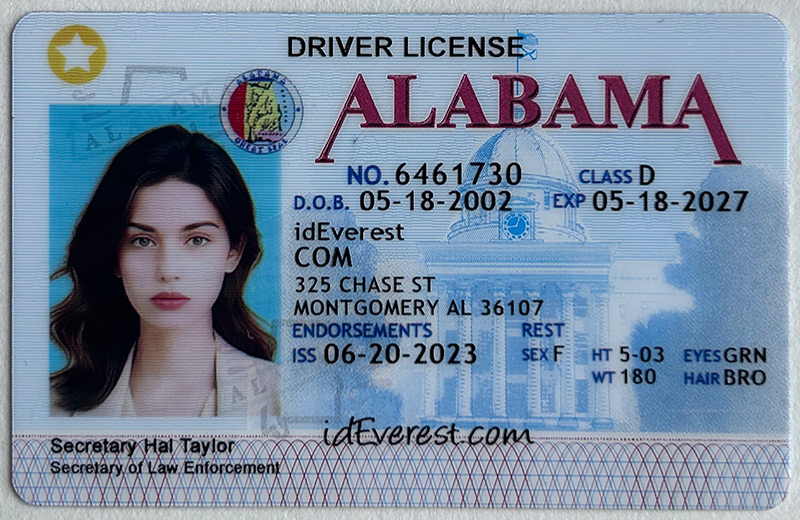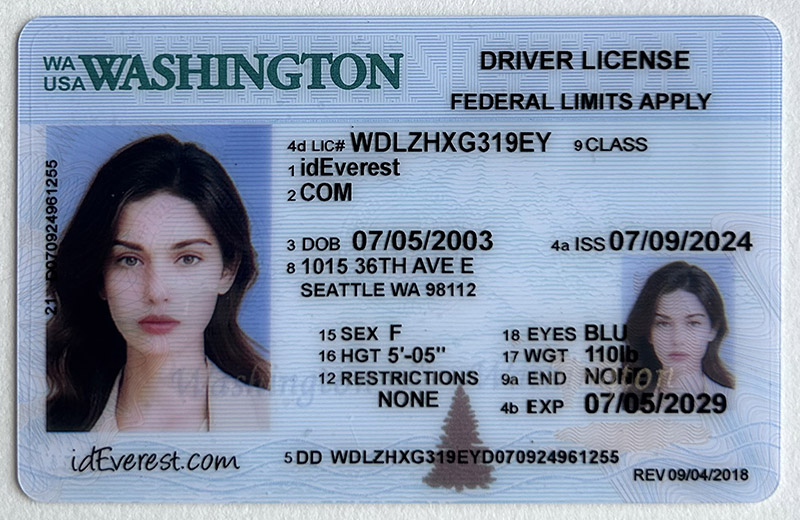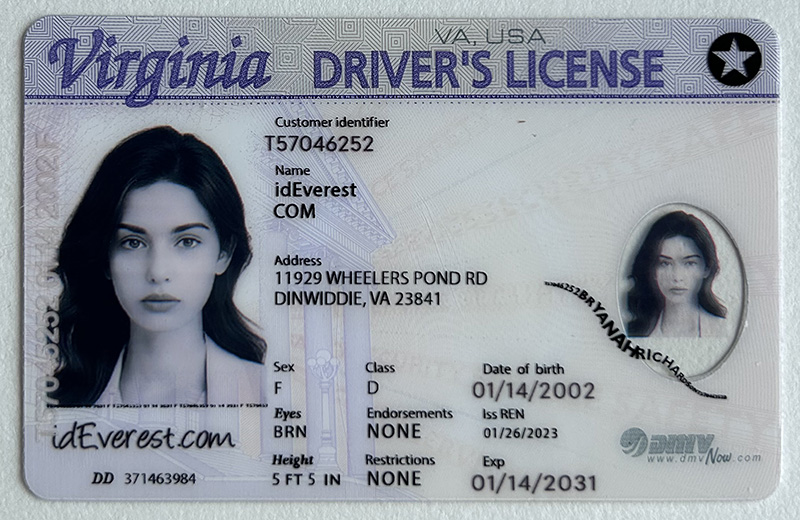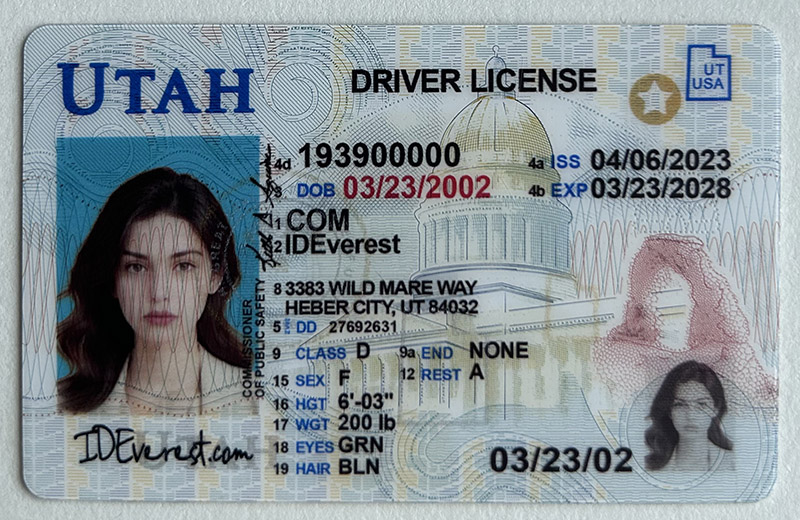fake id driver's license
Fake ID Driver's License: Product Introduction, Features, FAQs, User Reviews, Troubleshooting, and Conclusion
Introduction
In today's fast-paced world, where identity verification is becoming increasingly stringent, the demand for fake IDs, particularly fake driver's licenses, has seen a significant uptick. Whether it's for accessing age-restricted venues, purchasing alcohol, or simply evading certain bureaucratic hurdles, people turn to fake IDs for a variety of reasons. While the ethics and legality of using fake IDs are hotly debated, the market continues to thrive, providing a wide range of products catering to this demand.
This article delves into the world of fake driver's licenses, exploring the features of these products, addressing common questions and concerns, and presenting user experiences. The goal is to provide a comprehensive understanding of what fake IDs offer, the challenges users might face, and potential solutions.
Product Introduction
A fake ID driver's license is a counterfeit document that mimics a genuine driver's license. These fake IDs are often crafted to replicate the look, feel, and functionality of official government-issued licenses. Typically, they are designed to pass cursory inspections at bars, clubs, and other establishments where age verification is required. However, the level of authenticity can vary greatly depending on the quality of the product and the skills of the manufacturer.
Types of Fake Driver's Licenses
Basic Fake IDs: These are low-cost options that might pass a visual check but often lack advanced security features such as holograms, UV light verification, or scannable barcodes. They are typically used in low-stakes environments where detailed scrutiny is unlikely.
Premium Fake IDs: These are higher-quality products that aim to replicate every aspect of a real driver's license, including microprinting, holograms, barcodes, and other security features. Premium fake IDs are often more expensive but provide a higher likelihood of passing more rigorous inspections.
Novelty Fake IDs: These are designed primarily for fun or entertainment purposes and are not intended to be used as a genuine form of identification. They may include humorous or fictitious information and are usually sold as gag gifts or souvenirs.
Features of Fake Driver's Licenses
The features of a fake driver's license can vary greatly depending on the level of quality and the manufacturer. Below are some common features that distinguish high-quality fake IDs:
High-Quality Printing: Advanced printers capable of producing sharp, clear images and text. The best fake IDs use high-definition printing technology to replicate the exact fonts, colors, and layouts found on real IDs.
Security Features: Premium fake IDs often include key security elements such as holograms, UV features, and microprinting. These elements are crucial in mimicking the appearance of genuine licenses, especially when subjected to scrutiny under special lights or scanners.
Scannable Barcodes: To pass more advanced checks, some fake IDs include scannable barcodes or magnetic stripes that replicate those found on legitimate driver's licenses. These barcodes may contain accurate information that matches the details on the front of the card.
Material: High-quality fake IDs are usually made from polycarbonate or other durable materials that feel like a real driver's license. The texture, weight, and flexibility of the card are essential in passing touch-based inspections.
Customization: Reputable vendors often provide customization options, allowing buyers to specify details such as name, date of birth, address, and photo. This level of customization helps ensure that the fake ID matches the buyer’s needs as closely as possible.
Common Questions and Concerns (FAQs)
1. Is it illegal to purchase or use a fake driver's license?
Yes, it is illegal to buy, sell, or use a fake driver's license. Penalties can include fines, criminal charges, and even jail time. The severity of the penalty often depends on the intent and the jurisdiction.
2. How can I tell if a fake ID will pass a scan?
Scannable barcodes and magnetic stripes are a good sign that a fake ID might pass a scan. However, this is not guaranteed, as some scanners are sophisticated enough to detect inconsistencies.
3. What happens if my fake ID gets confiscated?
If your fake ID is confiscated, you may face legal repercussions depending on the circumstances. It’s important to be aware of the risks involved in using a fake ID.
4. How much do fake driver's licenses cost?
Prices vary widely, from as low as $50 for a basic fake ID to $200 or more for a premium version with advanced features.
5. Where can I buy a fake driver's license?
Fake IDs are often sold through online marketplaces, dark web platforms, or directly from manufacturers. However, engaging in such transactions is illegal and risky.
6. Can fake IDs be detected easily?
The ease with which a fake ID can be detected depends on its quality and the scrutiny it is subjected to. High-quality IDs with advanced security features are more likely to pass as genuine, but no fake ID is foolproof.
User Reviews and Experiences
Positive Experiences
Many users report success with high-quality fake driver's licenses, particularly those with advanced features like scannable barcodes and holograms. These users often mention that their IDs have passed multiple checks at bars, clubs, and even some retail stores. Some have even used their fake IDs to gain access to events or venues where they were otherwise ineligible due to age restrictions.
Negative Experiences
On the other hand, there are users who have had their fake IDs confiscated or rejected. Common complaints include poor quality, such as incorrect details, cheap materials, or missing security features. Some users have also reported being scammed by vendors, receiving either a low-quality product or nothing at all after payment.
Mixed Experiences
Some users report mixed results, with their fake IDs passing in some situations but failing in others. This variability often depends on the level of scrutiny applied by the person checking the ID and the specific quality of the fake license.
Troubleshooting: Issues and Solutions
Issue 1: The Fake ID Doesn't Scan
If your fake ID does not scan, the problem might lie in the barcode or magnetic stripe. Some vendors offer replacements or refunds in such cases, but this is not always guaranteed. If the ID doesn't scan, you might still be able to use it in situations where scanning isn't required.
Issue 2: The ID Was Confiscated
If your ID is confiscated, it's important to remain calm. Some establishments might simply refuse entry, while others may report the incident to the authorities. The best course of action is to leave the premises without causing a scene. You might consider ordering a new ID, but be aware that repeated attempts could increase your legal risk.
Issue 3: Poor Quality or Incorrect Information
If you receive an ID with poor print quality, incorrect details, or missing features, contact the vendor immediately. Reputable vendors may offer a replacement or refund, but this can vary. Always review the vendor's policies before making a purchase.
Issue 4: Delayed or Non-Delivery
Shipping delays or non-delivery are common complaints. Some users recommend choosing vendors that offer tracking information or expedited shipping options. If your ID does not arrive, contacting the vendor and requesting a resolution is the first step, but there’s no guarantee of success.
Conclusion
Fake driver's licenses are widely available and offer a range of features aimed at mimicking genuine IDs. However, the use of such products carries significant legal and ethical risks. While some users report success in using fake IDs for various purposes, others face issues such as confiscation, poor quality, or legal repercussions.
The decision to purchase or use a fake driver's license should not be taken lightly. It is crucial to weigh the potential benefits against the risks and to understand the legal implications fully. Ultimately, while fake IDs may offer a short-term solution to certain problems, they are not without serious consequences.
Always consider the legal risks and ethical considerations before deciding to engage in the use of fake IDs. Being informed and cautious is key to avoiding trouble, and seeking legal alternatives is always the safest route.
This document has been written with a focus on providing information and does not endorse or encourage illegal activities.
 Authentic Scannable Alabama F
Authentic Scannable Alabama F
 Authentic Scannable Washington
Authentic Scannable Washington
 Authentic Scannable Virginia
Authentic Scannable Virginia
 Authentic Scannable Utah Fake
Authentic Scannable Utah Fake